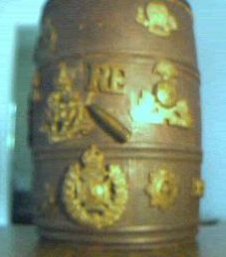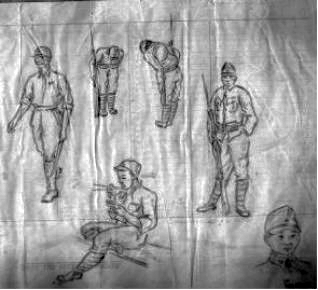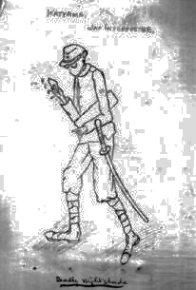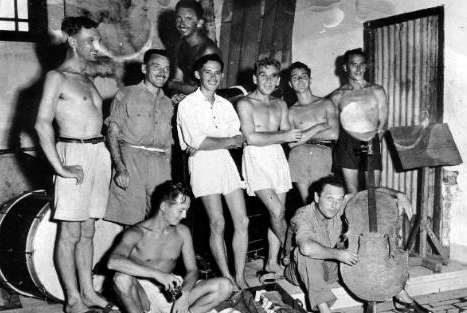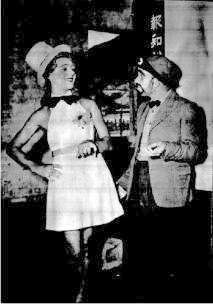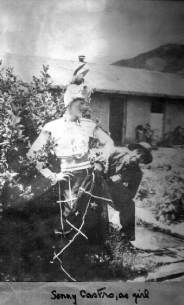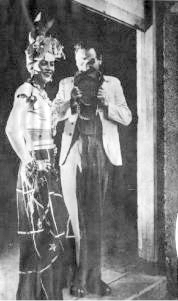|
Keeping busy was important to morale ...
The prisoners did many things to keep their minds active. This lamp was constructed for my Dad by someone whose name I don't know. It is a tobacco barrel with the badges of many of the units who fought in the Battle of Hong Kong. Note the bullet which, I believe, is Japanese. Unfortunately some of the badges have gone missing over the years.
|
|
Pencil
sketches of Japanese guards going about |
A
Particularly Nasty Guy, Katyama |
|
Even in the darkest of times, it was possible to find some lighter moments ...
The Cello ... It is also true that in times of despair, sadness, fear and uncertainty, man will seek to lighten those times with laughter. So it was with the prisoners of war captured after the Battle of Hong Kong. A group of officers and men got together to entertain their fellow prisoners with concerts, skits, and plays, thereby injecting a little light into the squalid world in which they lived for 44 long months. It did much to bolster morale and to literally keep the men's spirits alive. A good example is the cello. It was constructed from old oil cans, bits of wood, and other odds and ends, for my father by RR of C Cpl. Stewart Hendersen, Rfm. Wilbur Lester and another soldier by the name of Ampi. How my Dad loved that cello, or viola as Cpl. Henderson called it.
When
they could laugh the pain was a little easier to bear ... |
|
|
|
|
|
The Japanese locked up their bodies but they couldn't lock up the prisoners' minds. Keeping the mind working and boredom at bay was a daily challenge. Though their bodies were frail, due to disease and malnutrition, they kept their mind active in many ways. Chess and bridge tournaments were organized, volunteers gave lectures on a variety of topics that they were familiar with and language courses were given. One activity gave the prisoners a great deal of pleasure. Instruments donated by the Canadian YMCA had been allowed into the camp and an orchestra was quickly formed and gave frequent concerts The cello was built especially for my Dad so he could help entertain. A number of the prisoners, my Dad included, were hams at heart and enjoyed creating and staging plays and skits that brought the medicine of laughter into the camp. Each concert included an appearance by the "girls" dressed to the nines in fetching outfits that made the crowd give out a chorus of wolf whistles. Sonny Castro, a gentleman of Portuguese ancestry, was a particular hit. Sonny was a member of the HKVDC. He should have insured his legs for several cartons of cigarettes, worth more than money in the camp. Dad's interest in performing went back to when he was a teenager. He and his brothers and sister formed a performing group called "The Parker Concert Company of Sherbrooke, Quebec". My uncle Gault played piano, uncle Fenwick the violin and a Harry Lauder impersonation, and Dad played the cello. My aunt Marion assisted. My thanks to my cousin Gerald Parker for this information. ________________________________________ |
|
|
<<< Back |
Page 28 |
Next >>> |
|
